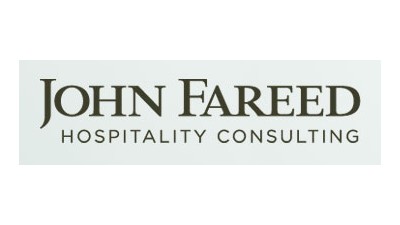Hospitality Expert John Fareed Talks Airbnb, Generational Buckets and Strategic Market Plans

A global expert in hotel openings, repositionings and key asset turnarounds, John Fareed’s hospitality consulting firm approaches the industry from a marketing standpoint, but, as John insists, it isn’t a marketing firm. Rather, John and his team put together strategic market plans (SMP) for hotels and resorts that place a high value on public input, similar to the way Mercedes-Benz designs cars.
"We go back the drawing board and try to reshape [the property] in a way that's most beneficial to the owner,” John says. “Our goal as a firm is to provide the necessary top-level hospitality consulting services that help brands, developers, REITS, asset managers and owners maximize their investments."
Bisnow spoke with John about both his business and the hospitality industry at large.
The Industry’s Planning Problem
John says his clients fall into two categories: either a client is spending a lot of money on a new build and wants to ensure it goes well, or a client wants to turn a property around because it’s underperforming.
“The biggest problem that a lot of our clients face,” John says, “is a lack of true understanding of strategic market planning.” To John, an SMP positions a property to better compete against the market set and involves an integrated team of ownership, management, financial controller, department heads, and other key stamembers of staff.
The Process
Coming up with an effective SMP requires a huge amount of primary research—interviewing past guests, meeting planners, travel agents, and other key target markets about their overall satisfaction with the property and service, travel frequency, household income, etc.—as well as secondary research, competitive analysis and behavioral timeline development. With this research, John works with the hotel’s team to determine targets, messaging, action plans, and the measurement vehicles necessary to determine success.
The new strategic market plan typically includes both internal and external actions, from bringing in service trainers, architects, interior designers, food and beverage experts, and spa consultants to improve the guest experience; to photographers, motion crews and web developers to change the hotel’s image in the mind of consumers. The game is to position the property to go after the specific markets that will deliver the best possible ROI.
Speaking of Specialization
When asked about the hotel industry’s ongoing obsession with Millennials, John admits he’s not big on the idea of generational buckets.
“In reality, we’re all human beings and we all have individual needs, wants and desires that are very similar in a lot of ways. I know Boomers who act like Millennials, and Millennials who act like Boomers, so I have a hard time with these black-and-white definitions of generational differences. There are valid differences, but they’re not as tight as everyone thinks.”
Still, while trying to appeal to everyone is a road to nowhere, there is huge value in specializing to a lifestyle. John says CitizenM hotels is an example of appealing to today’s mobile citizen and crafting a brand around a niche that is not divided by age or income level.
Airbnb
We also asked John about Airbnb and how it plays into his thinking. Interestingly enough, John says a lot of hoteliers still don’t consider Airbnb a true competitor and he feels that’s a mistake.
“While I still see Airbnb as an outlier, I feel it is one which we need to pay close attention. Airbnb will no doubt continue its growth, adding supply in key markets, which will chip away at hotel rates and occupancies. They’re also strategic thinkers. For example, they recently announced a partnership with Virgin America to provide seamless experiences for travel between California and Hawaii.”
But John says hoteliers still have one key advantage: they own the experience. Hotels have lobbies, restaurants, bars, spas and other amenities, not to mention consistent standards of service, cleanliness and safety that Airbnb just can’t deliver.
The White Rhino
Out of curiosity, we asked about his firm’s mascot, the white rhino, and were surprised with John’s thought process. When speaking with his team, John decided that the white rhino—an animal many see as intimidating at first glance, but is actually a gentle, gregarious giant with a highly developed vocabulary of grunts and snorts, thick skin and bad eyesight—would be the best comparison for the 6’2”, 220lb, bespectacled former Marine who is also intimidating at first glance, but clearly knows his stuff and speaks with you simply and eloquently.
But John says the fundamental reason for the mascot is the symbiotic relationship that exists between rhinos and oxpeckers, more commonly called tick birds. The birds not only pick ticks off the rhino’s back, but also fly away when there’s danger nearby, giving the rhino time to plan and defend itself. In a similar vein, John says his clients help him know when the market is in danger and he in turn provides them a strong, sturdy back to build upon.
If you’d like to know more about our Bisnow partner, John Fareed Hospitality Consulting, click here.

